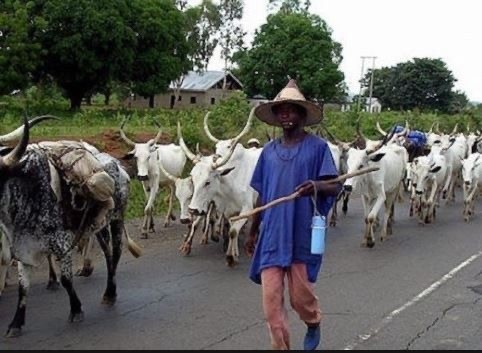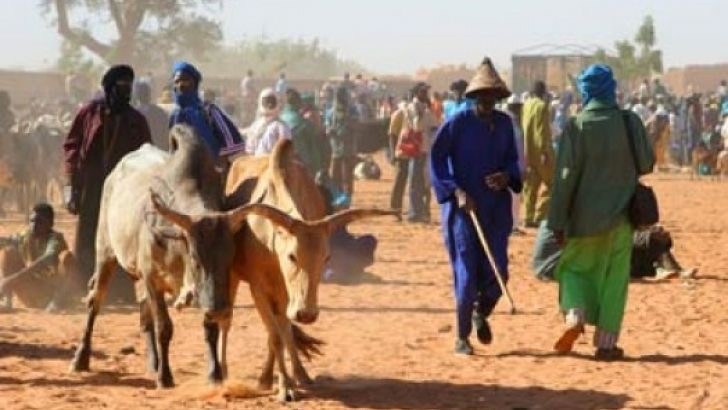The Fulani herdsmen conflict in Nigeria is a tangled web of issues that has captured the world’s gaze and ignited impassioned discussions within and beyond the nation’s borders. At its heart, it’s a battleground of livelihoods, pitting the Fulani herdsmen’s cattle-rearing sustenance against the imperative of safeguarding the security of all Nigerians. This intricate quagmire demands nothing short of a multifaceted remedy to unravel its complexities.
The ancient practise of livestock herding has helped the Fulani, known for their centuries-old nomadic heritage, build their very existence. Their way of life is centred on the success of their herds, which they lead over vast lands in search of priceless grazing pastures and life-giving water. However, the rapid urbanisation and population increase in Nigeria have put an increasing strain on these essential resources. As a result, fierce fights have broken out between Fulani herders and farmers who come from many ethnic backgrounds and are all seeking for control over the same valuable land and water sources.
These clashes haven’t just claimed lives and property; they’ve stoked the embers of ethnic tensions in a country already scarred by a long history of divisions, both ethnic and religious. It’s not just important, it’s imperative to grapple with this conflict for Nigeria’s very soul and stability.

Making exclusive grazing ranches or reserves is one solution suggested for the Fulani herdsmen problem. These reserves will provide Fulani herders with a safe, regulated shelter for their livestock, eliminating the need for ongoing cross-country journeys. Although this idea might appear reasonable, there is disagreement on how to implement it. It calls for significant infrastructural expenditures, the acquisition of land, and the participation of a complex network of parties, including state governments, municipal governments, and the herders themselves. Additionally, it could not be accepted by all herders as some may fiercely oppose giving up their long-standing way of life.
This complex problem reaches deep into Nigeria’s security situation and goes much beyond the herdsmen’s fight. The primary duty of the government is to protect its people and their property, but in pursuing this goal, sending military and police troops to areas rife with conflict has proven to be a double-edged sword. While intended to uphold law and order, these tactics frequently raised tensions that were already high and raised questions about potential human rights violations.
A clever, diverse technique is necessary to get through the complex web of livelihoods and security. It depends on finding a careful balance between meeting the financial requirements of Fulani herdsmen and bolstering security measures. One approach is to persuade herders to adopt modern cattle-rearing methods like ranching. This means offering them resources to facilitate their move, including as training, veterinary care, and financial assistance. In order to ensure that justice is upheld in the wake of conflicts, the government must simultaneously strengthen institutions for law enforcement and conflict settlement. It’s a risky juggling act that is necessary for peaceful coexistence in Nigeria.

Additionally, encouraging communication and reconciliation between the affected populations is crucial to creating long-lasting solutions rather than merely being an optional addition. Bureaucratic regulations alone will not be able to quell the poisonous brew of interethnic and inter religious conflicts. It demands local leaders, traditional authorities, and civil society organisations to spearhead grassroots peace initiatives. The key to reestablishing trust and cultivating peaceful coexistence in this patchwork of communities is to encourage dialogue and empathy. The start of the actual peace-building process is here.
The Fulani herdsmen conflict in Nigeria isn’t a simple problem; it’s a multifaceted puzzle demanding a deft balance between sustaining livelihoods and ensuring security. Crafting grazing reserves, tackling insecurity, and nurturing dialogue within affected communities form the bedrock of a holistic solution. The government, hand in hand with various stakeholders, must chart a comprehensive path that upholds the Fulani herdsmen’s rights and traditions while safeguarding the well-being of all Nigerians. Only through this multifaceted, all-encompassing approach can Nigeria aspire to untangle this age-old issue and lay the foundation for a future brimming with peace and prosperity for all its citizens.
Sources
- https://en.m.wikipedia.org/wiki/Herder%E2%80%93farmer_conflicts_in_Nigeria#:~:text=Herder%E2%80%93farmer%20conflicts%20in%20Nigeria%20are%20a%20series%20of%20disputes,return%20of%20democracy%20in%201999.
- https://papers.ssrn.com/sol3/Delivery.cfm/SSRN_ID3476374_code2336704.pdf?abstractid=3476374&mirid=1#:~:text=Most%20recently%2C,religious%20extremism%20as%20a%20cause
- https://core.ac.uk/download/pdf/225894279.pdf




